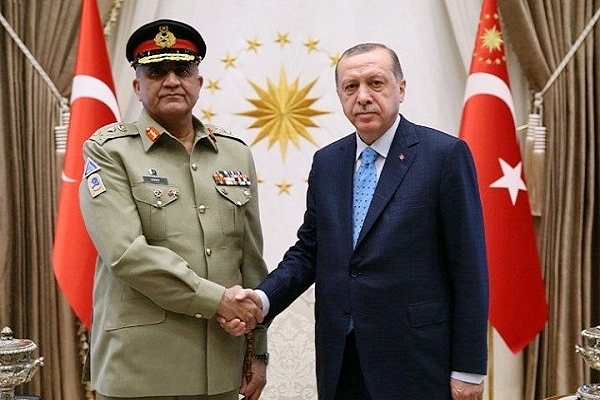
After Malaysia, Trade With Turkey Under Government Scanner For Interfering In India’s Internal Issues
After imposing restrictions on palmolein, crude and refined palm oil from Malaysia. India plans to use its economic strength to place possible trade curbs on Turkey for interfering in India’s internal issues, reports The Times Of India.
In recent times, Turkey has been openly siding with Pakistan and have made several statements on Kashmir and the abrogation of article 370. In the past as well Turkey supported Pakistan nuclear tests and called it a reaction to India’s nuclear program.
Turkey’s President Recep Tayyip Erdogan on 24 September 2019 raised the Kashmir issue in the United Nations and said, "Despite the resolutions adopted, Kashmir is still besieged and eight million people are stuck in Kashmir." He criticised the international community for failing to pay attention to the Kashmir conflict.
However government has not decided on what actions it will take against Turkey, unlike the case with Malaysia, were the government is said to be working on imposition of technical standards and a quality control order on import of microprocessors as well as telecom equipments which are likely to prove to be a very costly development for Malaysia.
As per reports, government may plan to cut oil and steel imports from Turkey. India’s trade with Turkey during 2019-20, was less than $7.8 billion, with imports of under $2.4 billion with oil being the major constituent.
In the 1950s, Turkey and Pakistan signed a Treaty of Eternal Friendship. This partnership was largely founded on the basis of Islam and the fact that both countries are Sunni Majority regions.
It should also be noted that Turkey under the leadership of Erdogan has been trying to emerge as the leader of the Islamic world.
Earlier, it had joined forces with Saudi Arabia rival Qatar to attend a summit organised by Malaysian Prime Minister Mahathir Mohammad called the ‘Muslim-5’, which analysts specialising in Middle East politics called, “aimed at rivaling the OIC,” a 57-member pan-Islamic body.